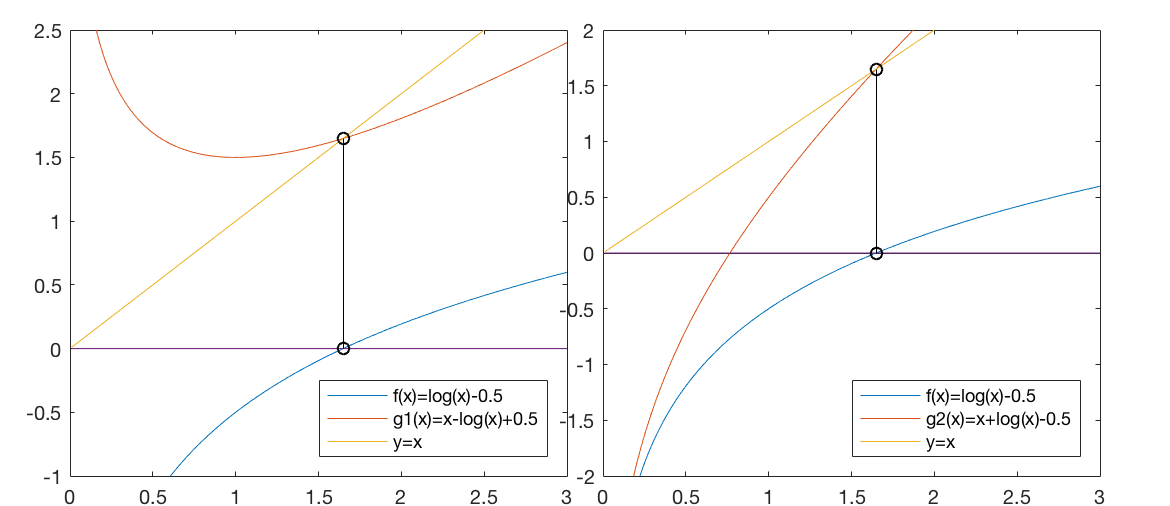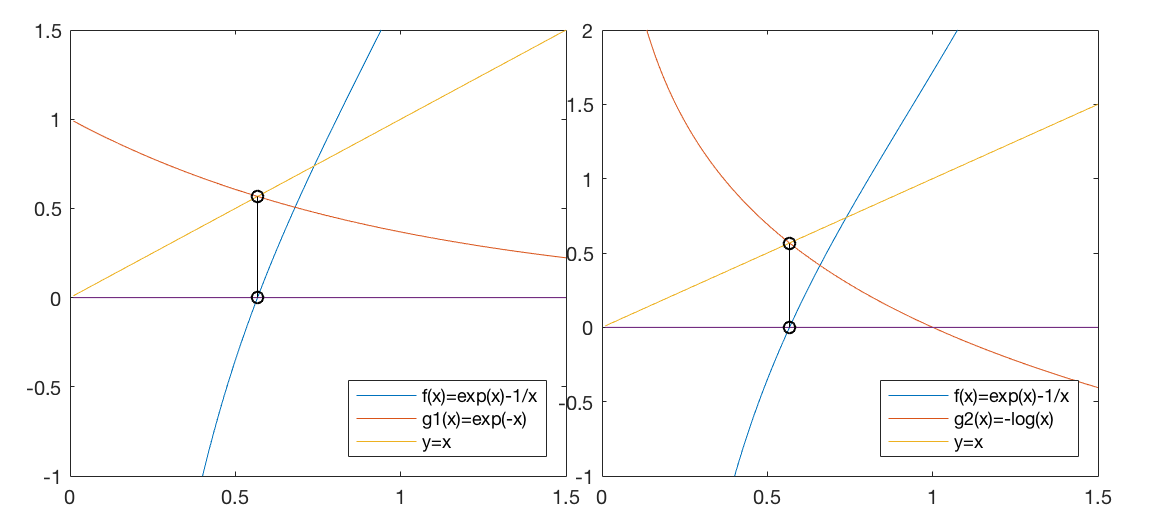To solve a given equation  , we can first convert it into an
equivalent equation
, we can first convert it into an
equivalent equation  , and then carry out an iteration
, and then carry out an iteration
 from some initial value
from some initial value  . If the iteration converges at a point
. If the iteration converges at a point  ,
i.e.,
,
i.e.,
 , then we also have
, then we also have  , i.e.,
, i.e.,  is also the
root of the equation
is also the
root of the equation  . Consider the following examples:
. Consider the following examples:
Example 1
To solve the equation
we can first construct another function
so that the equation  is indeed equivalent to the given equation
is indeed equivalent to the given equation
 . We then carry out the iteration
. We then carry out the iteration
 from some
initial value, such as
from some
initial value, such as  , and get:
, and get:
We see that the iteration converges to
 satisfying
satisfying
 , and, equivalently,
, and, equivalently,  is also the
solution of the given equation
is also the
solution of the given equation
 :
:
 i.e., i.e., |
|
Alternatively, we could construct a different function
which is also equivalent to  . But now the iteration
no longer converges. Why does it not work?
. But now the iteration
no longer converges. Why does it not work?

Example 2
We first convert this equation into an equivalent form
and then carry out the iteration:
which is the root of the given equation
 , i.e.,
, i.e.,
 .
.
Alternatively, the given equation can also be converted into a different
form
 . However, the iteration based on this function no
longer converges.
. However, the iteration based on this function no
longer converges.

Example 3
We define another equation:
and the iteration based on  converges to the root of
converges to the root of  :
:
i.e.,
 or
or
 .
.
In summary, an equation  can be solved by converting it into
an equivalent form
can be solved by converting it into
an equivalent form  , which can then be solved iteratively to
find
, which can then be solved iteratively to
find  satisfying
satisfying
 and equivalently
and equivalently  . However,
this iteration may or may not converge, as shown by one of the examples
above. We need to understand the condition for the convergence of the
iteration, so that we can construct the function
. However,
this iteration may or may not converge, as shown by one of the examples
above. We need to understand the condition for the convergence of the
iteration, so that we can construct the function  properly for the
iteration
properly for the
iteration  to converge.
to converge.











 is indeed equivalent to the given equation
is indeed equivalent to the given equation
 . We then carry out the iteration
. We then carry out the iteration
 from some
initial value, such as
from some
initial value, such as  , and get:
, and get:





 i.e.,
i.e.,

 . But now the iteration
no longer converges. Why does it not work?
. But now the iteration
no longer converges. Why does it not work?





















